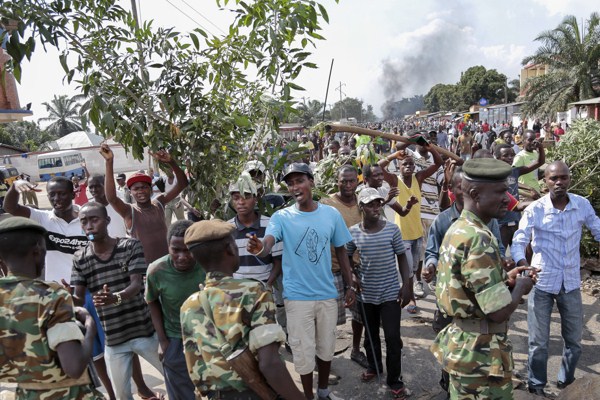Burundi’s army has been at the center of attention in light of the country’s ongoing political crisis, particularly after Gen. Godefroid Niyombare’s coup attempt last month. But the failed coup was not the only reason for that focus. The army is a key player in Burundi’s politics, as its existence and ethnically balanced composition represent one of the most successful results of the Arusha peace agreement that formally ended Burundi’s civil war in 2000. Despite the many reservations raised against the accord when it was signed, its detailed provisions for ethnic power-sharing in all state institutions, including the military, have helped maintain Burundi’s relative stability since then. President Pierre Nkurunziza’s attempt to reinterpret one of the deal’scentral points in running for a third term directly challenged that power-sharing provision of Burundi’s peace. It was no surprise, then, that his move evoked protests, not only from the opposition and international partners, but also from members within his party and, as the failed coup demonstrated, military officers.
Burundi’s army, renamed the National Defense Force in 2004, has been a model for how to integrate former enemy forces into a national military, and with surprising speed. A new, ethnically representative army was high on the list of demands from the former Hutu rebels during Burundi’s 12-year, ethnically driven civil war. Throughout Burundi’s history, autocratic leaders had used the army, strongly dominated by Tutsis who represent just 15 percent of the population, to crush attempts to reverse the unequal balance of power.
From the former Hutu rebels’ perspective, the new, integrated army was thus a sign of success. Therefore, the reaction to this new military from former government forces of the pre-Arusha army, known as the Forces Armes Burundais, or FAB, could understandably have been one of defeat and opposition, but that wasn’t the case. Instead, even though the accord’s radical downsizing of the new army primarily affected former FAB members, those troops actually participated in the creation of a new army. Three factors appear to have been essential in softening the blow for the ex-FAB soldiers. First, key leaders such as ex-FAB Gen. Germain Niyoyankana took part in the newly integrated general staff of the army, setting an example for former colleagues. Second, in response to increasingly vocal protests from ex-FAB members, the government temporarily suspended the forced demobilization of the army. And third, Burundi’s timely troop contributions to the African Union Mission in Somalia or AMISOM sent soldiers abroad to an important international peace operation just when there were strong demands to disband the bloated new army.

